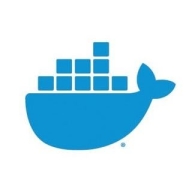

AWS Cloud Development Kit and Docker are complementary technologies in cloud-native development and containerization. Docker seems to have the upper hand due to its broad applicability beyond AWS, enabling consistent environments across different systems.
Features: AWS CDK supports multiple programming languages and integrates seamlessly with AWS services, enhancing developer productivity through infrastructure as code and reducing boilerplate requirements. Docker allows the creation and management of containers, providing portability and consistency, a dedicated QA environment, and internal DNS features that simplify container orchestration. Its self-contained environments save time and resources, offering persistence in situations like container failures.
Room for Improvement: AWS CDK's reliance on AWS ecosystems can limit flexibility and demand learning infrastructure-as-code intricacies. It may also require more advanced monitoring and debugging tools. Docker could improve in areas of complex networking setups, security enhancements for different orchestration tools, and better integration support for non-container services. Additionally, Docker might need more simplified user documentation for beginners.
Ease of Deployment and Customer Service: AWS CDK benefits from its tight AWS service integration, simplifying deployments with extensive, professional support from AWS. Docker's ease of rapid deployment and extensive community support, combined with plenty of documentation, allows broad adoption and consistent environments across various infrastructure stages, benefitting teams needing versatile solutions.
Pricing and ROI: AWS CDK is part of AWS's pricing model, potentially escalating costs as usage within AWS grows, though saving initial expenses. Docker provides cost-effective deployment with operational savings through minimized infrastructure discrepancies. Its cross-platform flexibility can yield better long-term ROI through uniform container environments, which lower operational costs across different platforms.
| Product | Market Share (%) |
|---|---|
| Docker | 34.3% |
| AWS Cloud Development Kit (CDK) | 6.7% |
| Other | 59.0% |
| Company Size | Count |
|---|---|
| Small Business | 22 |
| Midsize Enterprise | 4 |
| Large Enterprise | 34 |
The AWS Cloud Development Kit (AWS CDK) is an open source software development framework to model and provision your cloud application resources using familiar programming languages.
Provisioning cloud applications can be a challenging process that requires you to perform manual actions, write custom scripts, maintain templates, or learn domain-specific languages. AWS CDK uses the familiarity and expressive power of programming languages for modeling your applications. It provides you with high-level components that preconfigure cloud resources with proven defaults, so you can build cloud applications without needing to be an expert. AWS CDK provisions your resources in a safe, repeatable manner through AWS CloudFormation. It also enables you to compose and share your own custom components that incorporate your organization's requirements, helping you start new projects faster.
Docker provides a robust containerization platform, enabling identical environments across machines. With features like portability, fast deployment, and minimal resource consumption, Docker supports development, facilitating multitier architectures and integrating seamlessly with Kubernetes.
Docker offers an advanced containerization solution that enhances application management through automation and security measures. By isolating environments and managing dependencies, Docker supports platforms for scalable application development. Its integration with orchestration tools like Kubernetes and independence from host operating systems enable developers to create lightweight applications effectively. Although known for its cost efficiency and flexibility, Docker could improve in areas such as stability, command-line usability, and Windows performance integration. Users also point out the need for enhanced documentation, simplified management tools, and better persistence storage options, along with stronger marketing and easier user adoption.
What important features does Docker provide?Industries leverage Docker for application packaging, deploying microservices, and CI/CD processes. It supports DevOps, enhances backend service management, and enables resource-efficient development environments. Docker's compatibility with tools such as Jenkins ensures seamless integration and orchestration in modern IT workflows.
We monitor all Development Platforms reviews to prevent fraudulent reviews and keep review quality high. We do not post reviews by company employees or direct competitors. We validate each review for authenticity via cross-reference with LinkedIn, and personal follow-up with the reviewer when necessary.